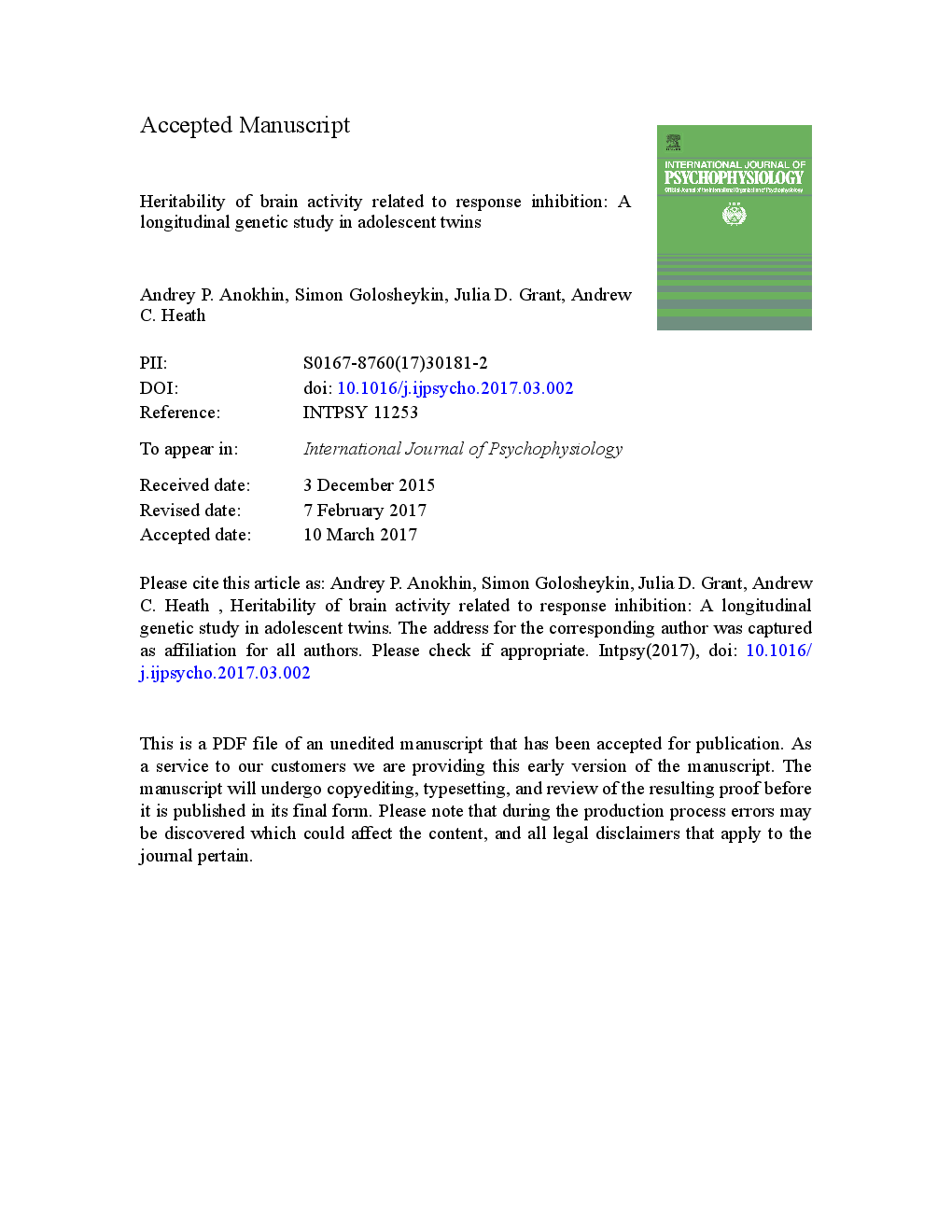ترجمه فارسی عنوان مقاله
وراثت از فعالیت مغزی مربوط به مهار پاسخ: یک مطالعه ژنتیکی طولی در دوقلوهای نوجوانان
عنوان انگلیسی
Heritability of brain activity related to response inhibition: A longitudinal genetic study in adolescent twins
| کد مقاله | سال انتشار | تعداد صفحات مقاله انگلیسی |
|---|---|---|
| 129420 | 2017 | 53 صفحه PDF |
منبع

Publisher : Elsevier - Science Direct (الزویر - ساینس دایرکت)
Journal : International Journal of Psychophysiology, Volume 115, May 2017, Pages 112-124
ترجمه کلمات کلیدی
مهار پاسخ بدون برو، وراثت، مغز، دوقلوها،
کلمات کلیدی انگلیسی
Response inhibition; No-Go; Heritability; Brain; Twins;

